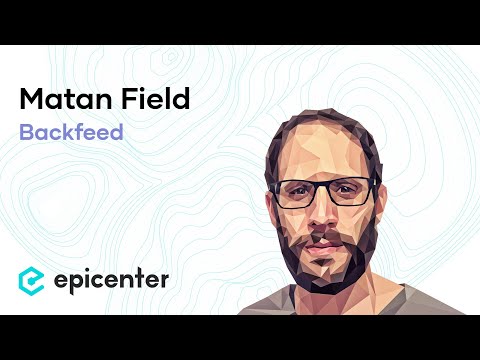I have reflected on the issue of scarcity of the reputation currency again. It really needs to be designed in a very specific way, otherwise it won’t be able to appropriately implement a reputation based economy.
Cryptocurrency Gedankenexperiment
To understand that, let’s examine a couple of different hypothetical cryptocurrencies.
InflaFlux
InflaFlux are basically the same as GeoFlux, but without the demurrage, and with no way of removing InflaFlux out of the system, except for loss of InflaFlux access. InflaFlux would pretty much start out like GeoFlux. However, eventually there would be so many InflaFlux in circulation, that the value of newly generated InflaFlux becomes negligible.
If one wanted to try to compensate for that effect by increasing the generation rate of InflaFlux, this would create further inflation. The higher the generation rate, the higher the relative value of newly created InflaFlux. On the other hand, InflaFlux which were already in existence, would become quickly devalued. So, nobody would really want to hold InflaFlux. There would especially be little reason to buy any InflaFlux, which basically makes it a rather worthless currency.
Onecoin
Let’s start with Onecoin. Onecoin is 100% pre-mined by its creator, the One. It’s an incredibly scarce currency. There is only 1 Onecoin ever in existence, but you can trade arbitrary fractions of that 1 Onecoin. This turns it into the perfect storage of value, well, at least in theory. Its value cannot be diluted by new Onecoins being mined into existence.
Now the real question is: Why should anyone purchase Onecoins from the One? People would reward the One for creating a strange altcoin. If Onecoin ever got widely accepted, the One would become tremendously rich, unless the One was actually a nice person and gave almost all of them away. If the One wasn’t nice, people would probably simply avoid that currency, because it made One person tremendously rich for no good reason. Onecoin would have tremendous other benefits to justify investing into Onecoin, in that scenario at least.
What if the One was actually nice and gave away, say 95% of all Onecoins to charity or something? Now the situation might be different. Using Onecoins would then mostly mean supporting charities and getting an excellent storage of value. At least for a while, Onecoin might be a popular currency, because it’s tremendously scarce, and is seen as socially beneficial, because it supports charities. In theory, such a currency could replace Bitcoin, because it’s scarcer and more just at the same time.
Decaycoin
Decaycoin is like Onecoin, in that it is 100% pre-mined by the One, and mostly given away to some “worthy causes” (as defined by the One, of course). The difference is that it is coupled to a reputation system like QP, not in the sense that reputation determined the creation rate of Decaycoin (because no new Decaycoins are generated), but for setting a reputation-dependent demurrage threshold for Decaycoin. Let’s say that Decaycoins decay at a very high demurrage rate of 50% per year. This turns it into an extremely unattractive currency to hold, if you are above the demurrage threshold. But: The fact that Decaycoin decays in that way, amplifies its scarcity, even above that one Onecoin. It’s the perfect storage of value for values below your personal demurrage threshold. If you can stay below the demurrage threshold, the value of Decaycoin will increase for various reasons in parallel:
- As acceptance of Decaycoin increases, the value of Decaycoin increases
- When the economy grows, the value of Decaycoin grows along with it. Decaycoin is naturally deflationary
- As more and more of the Decaycoins that you don’t hold decay, the scarcity of Decaycoin increases, thus making it more valuable
Decaycoin might be an even better reputation currency than GeoFlux. The ability to hold Decaycoin over extended periods of time requires a high reputation. People with high reputation can act as Decaycoin banks, at least up to a specific amount, because they are unaffected by the conditional demurrage. Those banks would charge fees for holding Decaycoins. Those fees would be lower than the demurrage rate, but larger than 0. Thus, people can basically make profit from storing Decaycoins in a decay-free way, if they have a high reputation. It would still be a good idea to store Decaycoins at “reputation banks”, because the expected value increase of Decaycoins would usually still exceed the amount of value loss from holding fees. Decaycoins would therefore be even more scarce than Onecoins. So, as storage-of-value currency, they might totally win the race.
T-Prestigecoin
T-Prestigecoins are a version of Decaycoins. Instead of being given away by the One at inception, there would be a different system for generating T-Prestigecoins. At a specific date T all T-Prestigecoins would be generated at once and distributed according to the Prestige scores of the users of the coupled QP network. This may be seen as fairer and more sensible version of bringing T-Prestigecoins into existence than the One deciding who gets how many coins first. But from the T onward, T-Prestigecoins would show pretty much the same dynamics as Decaycoins.
###PrestigeFlux
PrestigeFlux are pretty much the same as GeoFlux, but without the basic income component. PrestigeFlux are continously generated only by Prestige. In a certain way, PrestigeFlux would be similar to T-Prestigecoins, but with a continuos generation of new coins, instead of the total drop at an arbitrary point T in time. This might seem advantageous, because the choice of the arbitrary time T might be a politically disputed issue that might threaten the legitimacy of T-Prestigecoins.
###BasicFlux
BasicFlux is the same as GeoFlux, but without the reputation income component. All BasicFlux is generated as basic income. But there’s still the reputation-dependent demurrage. So, people can still act as “reputation banks”, if they have reputation. Those who have little reputation, would be strongly incentivized to sell their BasicFlux as quickly as possible.
In a BasicFlux system everyone would start out equally, but those who manage to get a lot of reputation would profit more from the system, because they would be able to make profit from their role as “reputation banks”. Still, inequality is pretty much limited by everyone getting a full basic income, and the currency being scarce from the reputation-dependent demurrage.
BasicFlux might be seen as socially fairer system, and as economically preferable one, because it keeps inequality at a pretty healthy level. That might increase the acceptance of BasicFlux above that of PrestigeFlux. Perhaps inequality would even become a bit too low with Basic Flux.
GeoFlux
GeoFlux basically fixes the potential “too high equality” issue of BasicFlux.
So, it seems like there is a chain of currencies:
InflaFlux -> Onecoin -> Decaycoin -> T-Prestigecoin -> PrestigeFlux -> BasicFlux -> GeoFlux
Each successor seems to fix some issues of the previous currency. So, if each successor is better in at least one way, and not worse in any other way, then the conclusion would be that GeoFlux should be the best currency of those presented. Of course, the assumption that no “successor currency” didn’t add any additional flaws is highly questionable. Still, considering all that I’ve written, GeoFlux should be a really good currency – at least if people were clever enough to understand the reasons why it would be so good!
What’s especially interesting in this chain is that the first currency, InflaFlux, and the last one, GeoFlux, only differ in the latter having reputation-dependent demurrage! So, the reputation-dependent demurrage system seems to be an exceedingly powerful aspect of the currency, because it changes its status from being the “worst” currency to being the “best” currency.
I think an important conclusion from this Gedankenexperiment is that the scarcity of a currency is not the only factor that gives it value. What also needs to be considered is the social legitimacy, which is an important factor for its acceptance, and thus for its (long term) market value. Legitimacy of fiat currencies is created by the (possibly flawed) democratic consensus of using such a currency as legal tender. Legitimacy of cryptocurrencies would need to be created in a different way. It should be based on its overall benefit for society at large. May the best currency win!

 ) what conclusions do you have drawn from it?
) what conclusions do you have drawn from it?



 needs to hit the fan first for that, then that’s the way it is.
needs to hit the fan first for that, then that’s the way it is.
